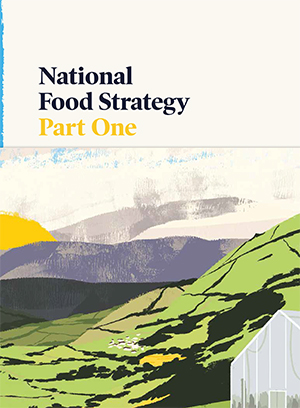‘The first major review of our food system in 75 years’
ORC welcomes the launch of the independent National Food Strategy, led by Henry Dimbleby, which was published on Monday (29th July 2020). We applaud his support for organic farming and his call for investment into biodiversity, agricultural science and innovation. He also highlights the need to “protect the high environmental and animal welfare standards of which our country is justly proud.”
Part One of the two-part National Food Strategy contains urgent recommendations to support this country through the turbulence caused by the COVID-19 pandemic, and to prepare for the end of the EU exit transition period on 31 December 2020.
It focuses on making sure a generation of our most disadvantaged children do not get left behind, and grasping the once-in-a-lifetime opportunity to decide what kind of trading nation we want to be.
In Chapter 6: A New Green Revolution Dimbleby says that the COVID-19 crisis “may soon pale into insignificance compared to the turbulence created by climate change and the collapse in biodiversity. “The current food system does terrible damage to the environment. Building a better future – one where our food no longer makes us, or our planet, sick – will be the biggest challenge of all.”
On p85 he says: “It seems to me that our only real hope of creating a sustainable food system lies in diversity: both practical and ideological. A diverse system, in which there are lots of different ways to produce food, is more flexible: if one part of the system gets struck by disaster, the others can pick up the slack. By letting many flowers bloom, we can develop methods of farming and food production that better suit our rapidly changing world.
“My ideal Food-topia would contain organic farms as well as solar-powered high-rise greenhouses growing fruit and vegetables in cities; rewilded landscapes, as well as traditional upland farms. I want to see massive investment into biodiversity, but also into agricultural science and innovation, so that farmers can increase their yields and cut back radically on the quantities of chemicals they use. I want weed-picking robots and blight-spotting drones to become as much a part of the landscape as cattle from local native breads (sic) restored to their natural environment.”

